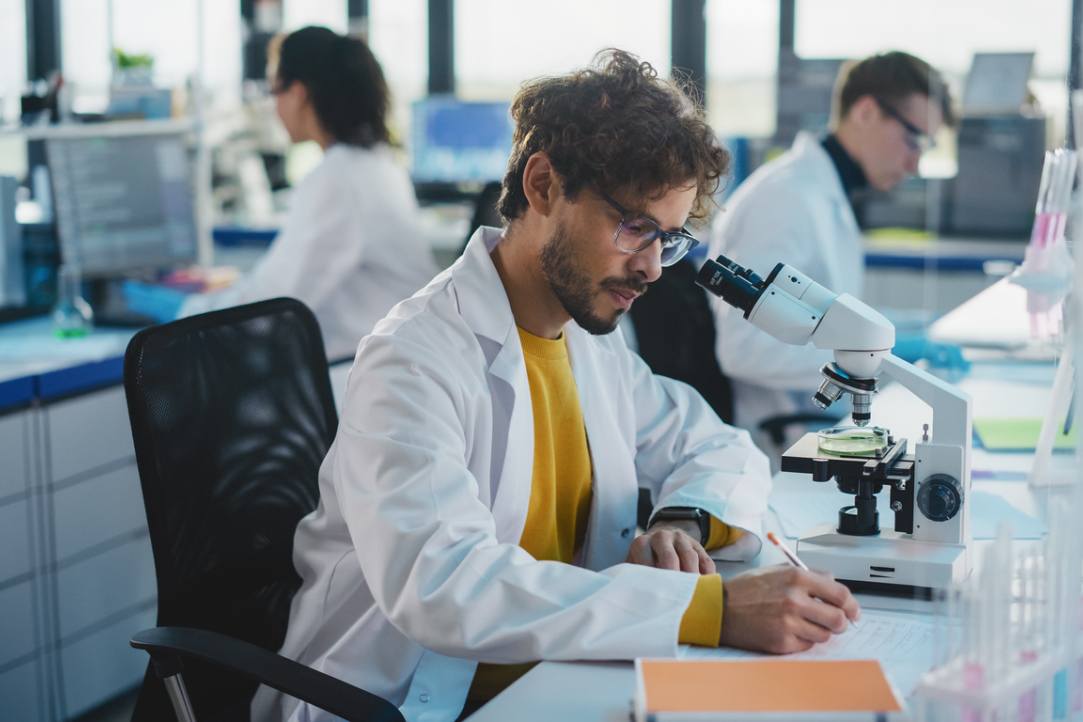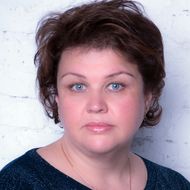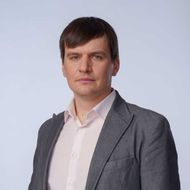'We Wanted to Create an Opportunity for Intercampus Teams to Engage in Promising Studies'

HSE University has announced the winners of the Project Competition in Basic Science Research for Intercampus Departments. The competition, which the university is organising for the first time, will provide funding to 10 research teams working on five topics. Four of the winning projects will be implemented by new research departments formed as a result of the competition.
The main objectives of the competition were to encourage new research teams and to enhance intercampus cooperation in basic science at HSE University.

Marina Litvintseva
'We wanted to encourage and support joint research teams at HSE and to create an opportunity for intercampus teams to engage in promising studies,' says Marina Litvintseva, Director for Advanced Research and Chair of the Competition Committee. 'We are glad that the competition attracted so much interest and active participation from all campuses. All applications were of a high quality—I wish all of them could have been awarded.'
Applications were accepted from August 8 to October 15, 2022. A total of 16 joint applications were submitted by research teams from different HSE campuses.

Elena Shadrina
'The idea of this intercampus project competition is simply amazing. I am happy for each winning application,' says Elena Shadrina, Deputy Director of HSE University-Perm. 'Working on campus, one is keenly aware of the challenge of being part of HSE's research agenda and getting new research projects funded. We welcome this competition as a tool that allows existing research teams to establish themselves by setting up new research departments and working in close collaboration with partners at other campuses. This is critically important for the campuses.'
Research teams at HSE-St Petersburg were particularly active, submitting as many as 12 joint applications.

Alexander Balyshev
'The high scientific quality of applications, the teams' motivation, and the way selection was organised during the competition all left a wonderful impression,' says Alexander Balyshev, HSE Senior Director for Basic Research. 'It appears that the competition has helped the participants to substantially improve inter-team communication, to take a fresh look at current challenges, and to agree on common priorities. It is particularly rewarding that all HSE University campuses will host the new winning projects.'
The Winning Projects
'The Development of Analytical and Numerical Methods for the Study of Multidimensional Dynamical Systems'. A joint application by the International Laboratory of Dynamical Systems and Applications, HSE University-Nizhny Novgorod (project manager Alexey Kazakov), and a research team led by Maria Belova (HSE Moscow).
'Neuroanatomic Correlates of Language'. A joint application by the Centre for Language and Brain, HSE University-Moscow (project manager Olga Dragoy), and the Centre for Language and Brain, HSE University-Nizhny Novgorod (project manager Maria Khudyakova).
'Research and Development of Methods for Multiple Access and Noise-resistant Coding for Energy-efficient Data Transmission in IoT Systems'. A joint application by the Laboratory of the Internet of Things and Cyber-physical Systems, MIEM, HSE University-Moscow (project manager Evgenii Kruk), and a research team led by Andrey Tyurlikov, HSE University-St Petersburg.
'Text as Big Data: Using Digital Methods to Model Convergent Processes in Language and Speech'. A joint project of the Linguistic Convergence Laboratory, HSE University-Moscow (project manager George Moroz), and a research team led by Tatiana Sherstinova, HSE University-St Petersburg.
'The Neuroeconomics of Consumer Behaviour: Neuronal Correlates and Behavioural Factors'. A joint project of the Institute for Cognitive Neuroscience, HSE University-Moscow (project manager Oksana Zinchenko), and a research team led by Sofia Kulikova, HSE University-Perm.
See also:
Research Reveals RNA's Role in Cancer Progression
An international group of scientists and medical specialists, including HSE researchers, examined the role played by microRNA (miRNA) and long non-coding RNAs on the progression of ovarian cancer. Having analysed more than a hundred tumour samples, they found that miRNA can prevent cell mutation while long non-coding RNAs have the opposite effect of enabling such mutations. These findings can help design new drugs which act by regulating miRNA concentrations. The study was published in the International Journal of Molecular Sciences.
‘We Managed to Bring Together Specialists in AI, Pure Mathematics, and Neurobiology’
In early September, the HSE University Faculty of Computer Science hosted the international conference Computer Methods of Cognitome Analysis. The event was organised by the International Laboratory of Algebraic Topology and Its Applications at the faculty.
Russian Researchers Propose New Approach to Studying Facial Emotion Recognition
Researchers of the HSE University and the Southern Federal University (SFedU) have tested a new method for studying the perception of facial emotional expressions. They suggest that asking subjects to recognise emotional expressions from dynamic video clips rather than static photographs can improve the accuracy of findings, eg in psychiatric and neurological studies. The paper is published in Applied Sciences.
Academics Started Working Even More During the Pandemic
Academics’ work week became even longer during the pandemic. This is true of researchers from different countries, independently of their gender and specialisation, an international research team with HSE University participation found. Their working time during the pandemic was 51 hours compared to the usual 40. The increased number of working hours per week seems to have become part of the new academic norm. The results of the study were published in the Plos One journal.
HSE Researchers Develop New Method for Analysing Genetic Admixture of Populations
Researchers of the HSE International Laboratory of Statistical and Computational Genomics together with their international colleagues have proposed a new statistical method for analysing population admixture that makes it possible to determine the time and number of migration waves more accurately. The history of Colombians and Mexicans (descendants of Native Americans, Spaniards and Africans) features two episodes of admixture that occurred about 350 and 200 years ago for Mexicans and 400 and 100 years ago for Colombians. The results were published in the Plos Genetics journal.
Scholars from Moscow and Vladivostok Join Efforts to Study Institutes and Preferences in Economic Behaviour
Applications from HSE departments for the ‘Mirror Laboratories’ open project competition are open until May 20. One of the ‘mirror laboratories’ successfully operating today was created as a result of a similar competition in 2020 by economists from HSE University and Far Eastern Federal University (FEFU) to study institutes and preferences in economic behaviour. Alexis Belianin, Head of the HSE International Laboratory for Experimental and Behavioural Economics, talked about how peers from Moscow and Vladivostok collaborate.
Stress Disorders More Prevalent among Doctors due to the Pandemic
Psychologists from HSE University have joined their peers from Ekaterinburg to look into the impact of the pandemic on the mental health of Russian doctors. They found that medical staff are suffering from stress, anxiety, and depression more often than before. The results of the study were published in International Journal of Environmental Research and Public Health.
International Laboratory of Landscape Ecology Opens at HSE University
The laboratory will be led by Robert Sandlersky, a specialist in energy and mass transfer and the study of other properties of landscapes via satellite imagery and Senior Research Fellow at the Severtsov Institute of Ecology and Evolution of the Russian Academy of Sciences. The HSE News Service spoke to Robert about the laboratory’s future activities.
New International Laboratory to Study Lighting Flashes and Volcanic Lightning
HSE University has launched a new International Laboratory for the Study and Assessment of Dangerous Geophysical Phenomena. Alexander Kostinskiy, Head of the Laboratory and Deputy Director of HSE MIEM, explains the laboratory’s future work, its important research and practical applications, and the role of international cooperation in the new laboratory.
Alexei Vagov: ‘Metamaterials Should Serve People'
The Centre for Quantum Metamaterials is one of the new international laboratories that will be launched at MIEM, HSE University, in 2022. Alexei Vagov, Head of the Centre, speaks about the main areas of the Centre’s research, its team, and future research cooperation.


